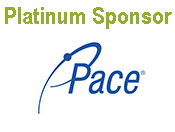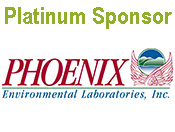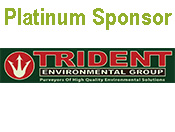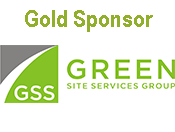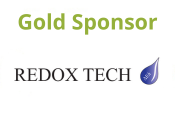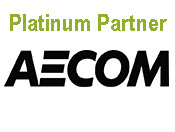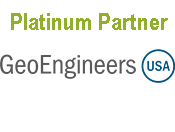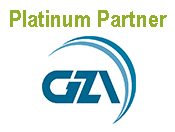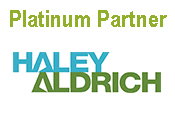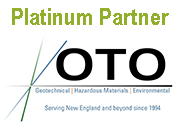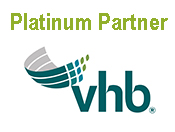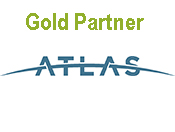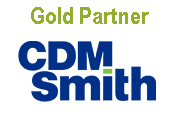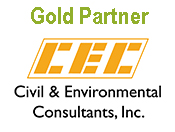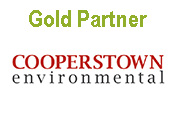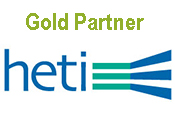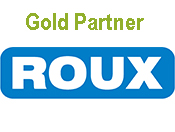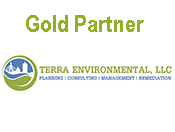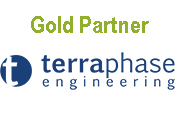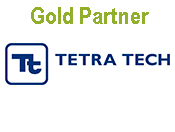MassDEP has announced that the application for the FY2023-24 Technical Assistance Grant (TAG) is now available. This grant opportunity provides $200,000 in funding, with up to $20,000 per community or municipal applicant-group selected for an award, to enhance public involvement and promote better understanding of the cleanup of contaminated sites in their communities.
The application deadline is Tuesday, October 18, 2022.
Read More
The following LSPA compliance tip was presented at the June 2022 Membership Meeting, which was held virtually through the Zoom webinar platform, on June 21, 2022.
Compliance Tip of the Month:
Pursuant to 310 CMR 40.1074(5), in addition to the requirement to incorporate a Notice of Activity and Use Limitation (AUL) into deeds or other instruments of property transfer, a copy of the deed or other instrument (with the incorporated AUL) must be submitted to MassDEP within 30 days of recording. This must be done using Section B, item 11, of the BWSC113 form (note that an LSP signature/stamp is not required for this submittal). Both the former and new property owners have this obligation; however, a submittal provided by either of those parties meets the requirements for both of them.
Read More
The LSPA Board is pleased to announce that three candidates have been elected to the LSPA Board of Directors for three year terms from FY '23 through FY '25:
- Katherine Dilawari, PE, LSP, Principal, Contaminated Site Management, Haley & Aldrich, Inc. Ms. Dilawari will begin her 3-year term on July 1, 2022.
- Timothy Nevins, LSP, CHMM, Senior Principal Scientist, Alliance Environmental Group/An F.W. Webb Company. Mr. Nevins will begin his first 3-year term on July 1, 2022.
- Joseph Roman, LSP, Environmental Division Manager, GEI Consultants. Mr. Roman will begin his second 3-year term on July 1, 2022. He will continue to serve as LSPA Treasurer.
Thank you to all who voted.
Read More
LSPA Goes to Polar Park
The LSPA hosted a fun night of socializing and baseball at beautiful Polar Park in Worcester earlier this week. Perfect weather. Free drinks and food, raffle prizes, and a private box area made the night even better. Keep an eye on Jaylin Davis #12 – he had a hot night with two home runs. Box score: Mud Hens 0, Red Sox 4 (Final Score) on Gameday (milb.com)
Read More
- The LSPA Member Award is presented to an LSPA Member in recognition of leadership, commitment, and contributions to the LSPA organization and membership over the previous year.
- The LSPA Service Award is presented to an individual or organization in recognition of service to/support of the LSP Association and its mission; service may be in the form of in-kind services, financial or other support. This award is for service over the previous year.
- The Contribution to the Practice Award is presented to an individual or organization from the public, non-profit, or private sector for outstanding contributions to the practice and advancing the profession over the previous year. Attributes may include creativity in balancing economic development with environmental values, practical approaches to regulatory compliance, and innovative initiatives in technology and sustainability.
- The LSPA Environmental Justice Award is presented to an individual or organization from the public, non-profit, or private sector for recent or continuing outstanding contributions in increasing awareness of Environmental Justice (EJ) issues and/or supporting EJ communities. Learn more about Environmental Justice populations here.
- The Lifetime Achievement Award is presented to an individual in recognition of distinguished and continued contributions over 25 years or more to the advancement of science, standards, or professionalism in the field of site assessment and remediation under MGL c. 21E. The awardee must:
- Be an LSP or someone in the supporting professions, and
- Demonstrate commitment to the LSPA. This might include participation in the LSPA at a leadership level, e.g. founding member, committee chair, Board member or officer; or partnership with the LSPA through leadership level participation in a related organization.
The following LSPA compliance tip was presented at the May 2022 Membership Meeting, which was held virtually through the Zoom webinar platform, on May 18, 2022.
Practice Tip of the Month:
Read More
The LSPA's Emerging Professionals Committee (EPC) is dedicated to providing educational & social programs for professionals who are new to environmental consulting in Massachusetts.
In November 2021, the EPC presented, “To LSP or Not to LSP" Career Path Considerations in Environmental Consulting. During the event, a panel of four speakers discuss various career track options in the Environmental Assessment and Remediation Industry, their backgrounds and how they ended up in their current role. This video will help to provide new professionals and college/grad students an idea of the different types of careers they could pursue within the industry.
Read More
|
Voting will open on Tuesday, May 24, 2022 for the 2022-2023 LSPA Board of Directors election. Board positions will take effect July 1, 2022.
Ballots will be sent by email to all LSPA members, both Full and Associate. We encourage all members to vote.
The LSPA's 9-member Board of Directors is composed of LSPA members who combine experience in environmental work with a passion for supporting and promoting the LSP practice. Current LSPA Board members are shown here.
There are three open seats on the Board for this election; the three year term is from FY '23 through FY '25. Provided below are the candidates on this year's ballot. Please click on each candidate's name to read more about them.
New Board members will be announced at the LSPA monthly membership meeting on Tuesday, June 21, 2022, which will be held from 3:45 PM to 5:15 PM as a live webinar.
Please note that voting will close on Wednesday, June 15, 2022, at 5 PM.
If you have questions or comments, please contact Wendy Rundle, LSPA Executive Director at [email protected].
Thank you,
|
|
David E. Leone, LSP
LSP Association President
|
- Fund PFAS Detection and Remediation
- Support Environmental Justice Communities
- Phase Out PFAS in Consumer Products
- Expand PFAS Regulation
- Encourage Private Well PFAS Testing and Remediation
- Support Firefighters and Local Fire Departments
- Address PFAS Contamination and Accountability
- Enhance Public Awareness of PFAS
Chuck Myette, LSPA Past President, Brown and Caldwell, attended the Endicott College Sustainability Career Fair on behalf of the LSPA and the LSPA Scholarship Fund.
Chuck is pictured here with Jack Duggan, Associate Dean, School of Science & Technology, Endicott College.
Read More
The following LSPA compliance tip was presented at the April 2022 Membership Meeting, which was held virtually through the Zoom webinar platform, on April 14, 2022.
Compliance Tip of the Month:
Any time environmental samples are taken at a listed disposal site on behalf of someone other than the owner of the property, the person(s) conducting the response action shall provide the owner of the property with a written notice using BWSC-123 prior to the sampling, or no more than seven days after the sampling if it was conducted as part of an IRA to address a 2-hour notification.
Read More
Save the Date!
The following LSPA compliance tip was presented at the March 2022 Membership Meeting, which was held virtually through the Zoom webinar platform, on March 15, 2022.
Compliance Tip:
An LSP may request an advisory ruling from the LSP Board of Registration for an interpretation of one or more of the LSP Rules of Professional Conduct. Advisory rulings will be issued at the Board's discretion and only upon written request. The regulation at 309 CMR 5.00 provides rules for such requests.

